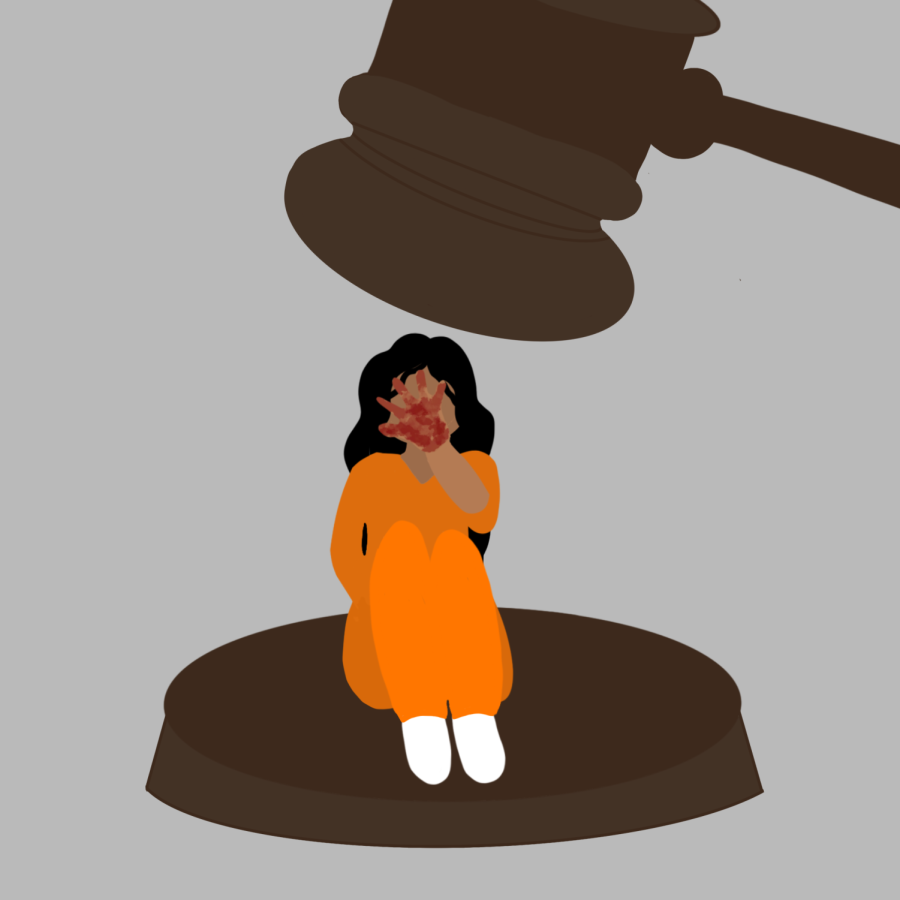Persecution over protection
October 11, 2022
The criminalization of women who defend themselves against their abusers is a long-standing issue that has become more recognized in the public eye in recent years. This pattern has been highlighted by multiple cases that show just how unfair it is to the victims of these situations that they can be tried for acting in self-defense.
Pieper Lewis, a teen tried in Iowa, managed to avoid time in prison after pleading guilty to fatally stabbing her 37-year-old abuser in June of 2020. She was given five years probation, 1,200 hours of community service and ordered to pay $150,000 in compensation for the man’s death. Meanwhile, in New York, Nicole Addimando was given 19 years to life in prison for shooting her husband in 2017 after he allegedly threatened to kill her. The Domestic Violence Survivors Justice Act passed in 2019 made her eligible for a reduced sentence as a victim of domestic abuse. However, a judge ruled that because she had opportunities to leave her husband beforehand, she did not fit the requirements of this law.
In yet another case, this time in Alabama, Brittany Smith was assaulted and shot her assailant after he attacked her and her brother who came to her aid. In the aftermath, thirty-three wounds were found on her, but she was still incarcerated and even institutionalized before requesting a Stand Your Ground hearing. The Stand Your Ground laws allow a victim to use deadly force in response to their assailant, if necessary, and without legal repercussions. Despite the many injuries found on Smith’s body and her claim that her attacker was choking her when she shot him, leaving little to no room for escape, she lost her hearing and faces up to life in prison. These cases show just how unforgiving the law can be towards women who act in self-defense.
It must be considered that each state has its own laws the courts must follow. The treatment and conviction of defendants in these cases are widely dependent on the state they are being tried in. For example, in some states, including New Jersey and Illinois, a history of abuse is considered during the trial, but only to lessen the charge given rather than to acquit the defendant completely. Victims do often use a reported history of abuse as a defense, but in several cases, it is not enough. The women were still denied the defense because a history of abuse in of itself is not considered a defense to a criminal act. It is, however, considered relevant evidence for cases in which self-defense can be claimed for the defendant.
Proven prior abuse is a defense in its own right and should be considered in court as a way to completely absolve the defendant of their crime as an act of self-defense. As seen in previous examples, the moments leading up to the action are essential to determining the guilt of the defendant but are blatantly ignored in some cases, such as Smith’s. What is the point of Stand Your Ground laws if the person who had to stand their ground was convicted of a crime anyways? These cases add to the already existing fear of abuse victims and women everywhere. They set the precedent that victims cannot even defend themselves if necessary without risking criminal sentencing.
Is it fair to call this justice? Our courts are meant to protect the innocent, but when the innocent are forced to protect themselves, they are punished for it. Reported abuse should be considered a legal defense for those being tried for the murder of their alleged abusers. For the sake of abuse victims all across the country, abuse and assault should be considered a valid legal defense that acquits them of any action against their assailants made in self-defense.












